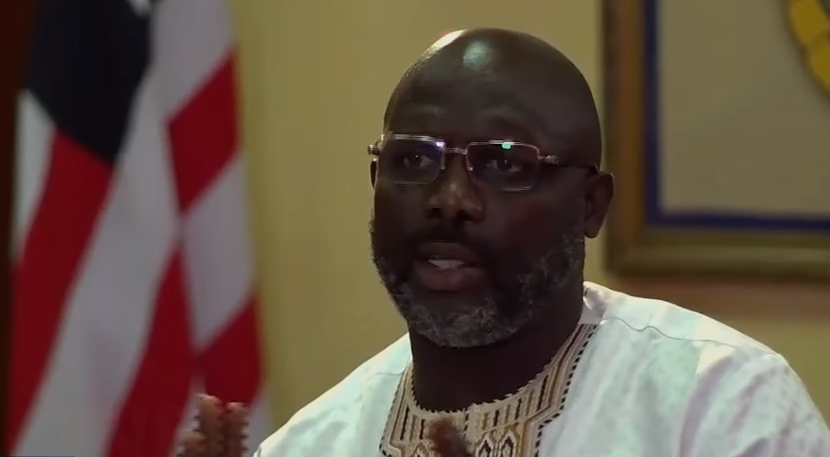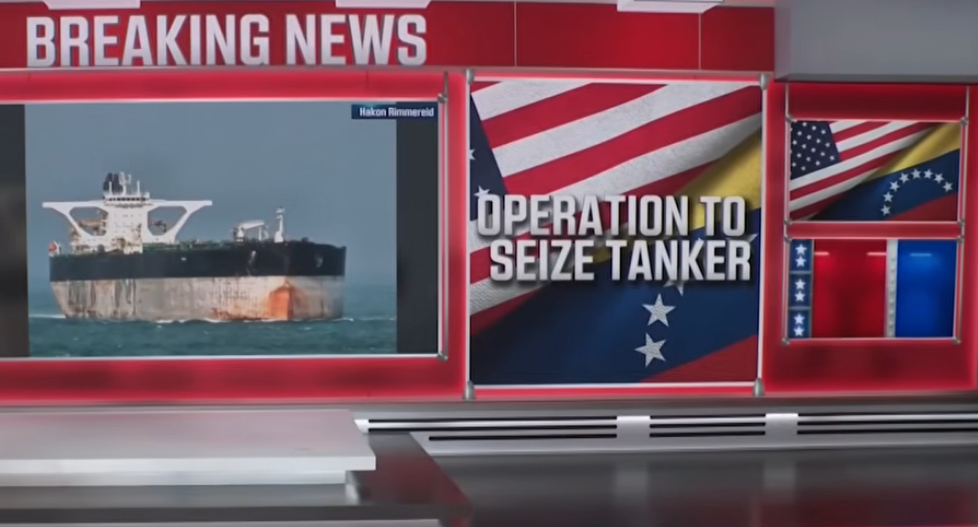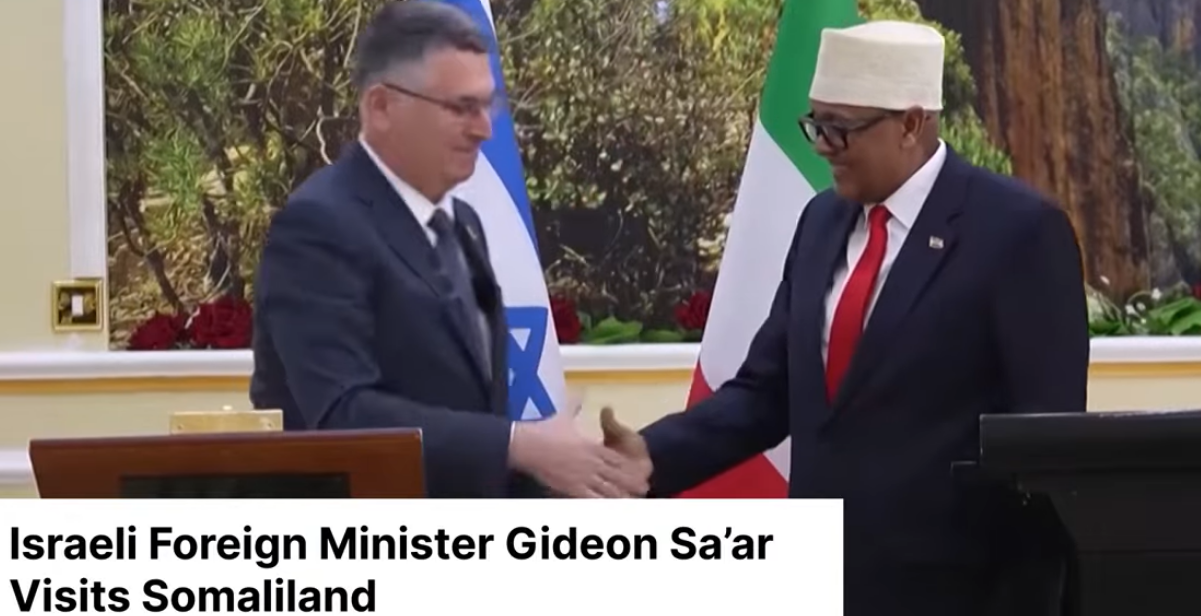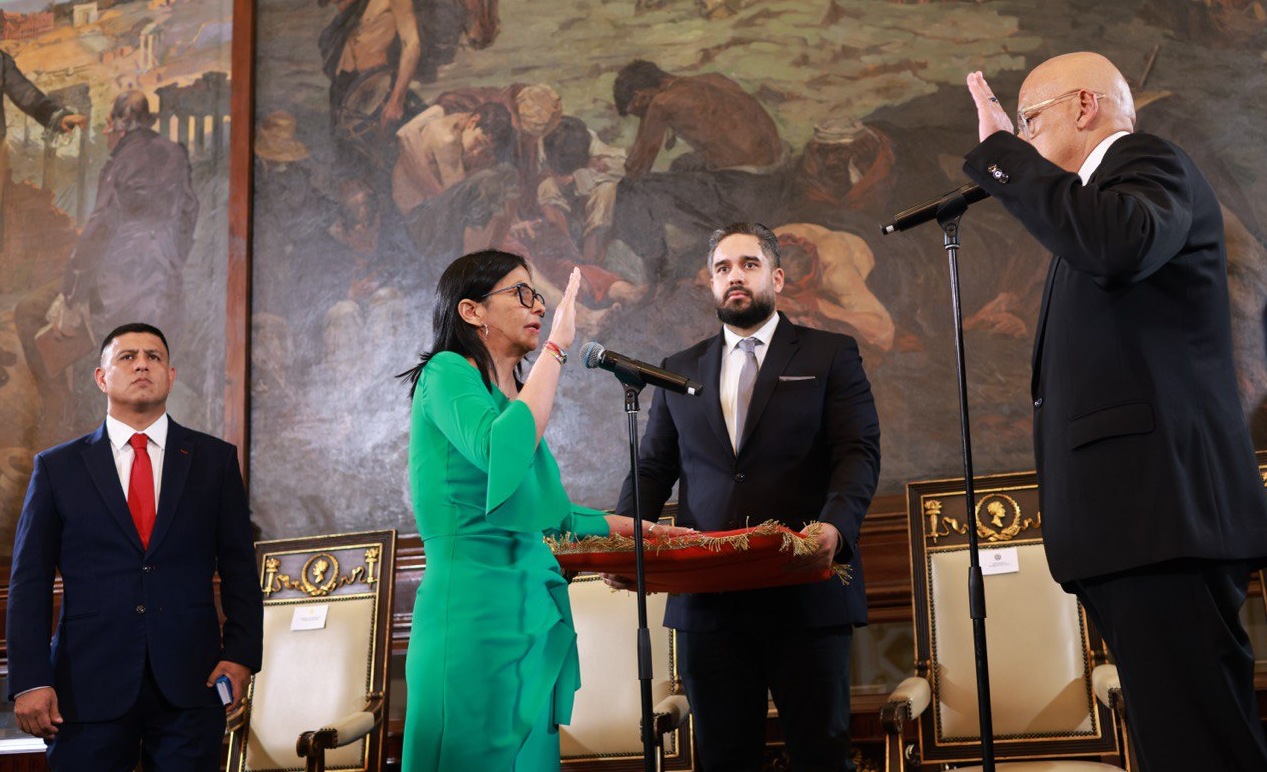By Martins Agbonlahor
Photos: YouTube Screenshots\Wikimedia Commons
George Weah was twice the African Footballer of the Year, FIFA World Player of the Year, Winner of the Ballon d’Or and a football artist per excellence, so much so that if electioneering was soccer, he would have used his rich skills and supersonic speed to meander through opponents and score breathtaking goals. But alas, this is not the case, as George Weah, himself, realized in the recently-concluded presidential election in Liberia, where he lost to the opposition candidate, Joseph Boakai.
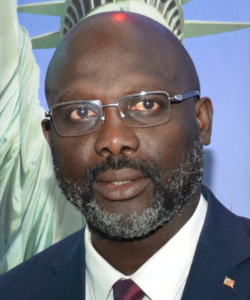
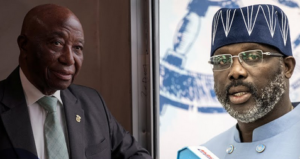
Weah cut his political teeth when he ran for the presidency of his country in 2005 under the umbrella of the Congress for Democratic Change (CDC), but lost to Ellen Johnson Sirleaf, the Nobel laureate and first woman to be president in Africa, having reached the second round. Elected a senator in the 2011 election, Weah continued his quest, as he once opined, “to better the lives of the Liberian people”, by contesting the 2017 presidential election against the current winner, Joseph Boakai, and was sworn in in 2018.
President George Weah has been accused of not living up to his promise of eradicating poverty and shielding some of his officials accused of corruption in that he had failed to bring the said officials to justice. Though he had not been personally accused of corruption or money laundering that African politicians are notorious for, he believed that those who preached probity should live above board, and once instituted a law to cut excesses amongst government ministers by asking politicians to return government vehicles and other equipment they had in their possession. He, himself, showed by example by taking a huge pay cut.
This said, allow me to extol his exemplary conduct in accepting himself as a gracious loser in the recent presidential election, and sending congratulatory messages to the victor, which showed him as a politician of another kind: a man of principles. When interviewed, he remarked inter alia, that “it was time to put national interest above personal interest.” He even went as far as to invite the winner to a church where they joined up with the mammoth congregation and prayed for the progress of Liberia, their motherland thereby winning encomiums in the United States, the European Union, the UN, and amongst other stakeholders who see transparency in African politics as scarce as the tiger’s tears.
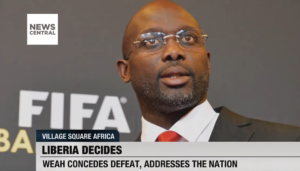
Weah was a goal-getter during his soccer days and now a go-getter in politics. He stands tall in my estimation, not physically – as he’s a man-mountain – but in his keenness of thought and vision. His conduct is a step in the right direction and the kind of attitude that our politicians should exhibit in Africa’s fledgling democracies. They must learn to eschew political violence and jettison the current politics of bitterness consuming Africa like a tidal wave. African politicians must learn to accept electoral defeats as a fact of life and face such defeats with an optimistic attitude.
If the Ivorian politician, Laurent Gbagbo had borrowed a leaf from President Weah’s conduct and respected the results of the Ivorian election of 2010, the civil strife that engulfed Ivory Coast, leading to the massacre of over three thousand citizens would not have occurred, and the dead would have been here with us today.
If the renowned Kenyan opposition leader, Oginga Odinga had held out an olive branch to President Mwai Kibaki, the acclaimed winner of that country’s 2007 presidential election, or had even shown a scintilla of rationality, there would not have been the needless mayhem that became the aftermath of his blatant refusal to concede defeat. His sheer disgruntlement pushed poor Kenyans to the streets and brother took up arms against brother, resulting in multiple deaths and thousands of barbecued bodies being strewn all over the streets of Nairobi. All for one cantankerous politician!
In fact, this is also a wakeup call to Nigeria’s so-called ‘elder statesman,’ ex General Olusegun Obasanjo, who, during his reign as President of Nigeria, once said that election was “a do-or-die” affair thereby pitching one political party against the other in a ferocious cross-fire of rancor, bitterness and acrimony. The ex-Army General, I think, should learn from President George Weah’s sagacity and political maturity.
Now that a victor has emerged in the recently-concluded election, I have no doubt whatsoever, that President George Weah will turn out a credible Opposition Leader and one who prefers dialogue to diatribe, disagrees without being violently disagreeable and shuns all acts of blatant political partisanship for the betterment and progress of Motherland Liberia.
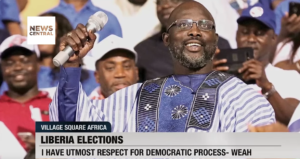
Thank you, King George!
While we congratulate the president-elect, Mr Joseph Boakai, whose electoral victory is still being celebrated all over Monrovia by electrified audiences, he should not lose sight of the task ahead, which though, seems gargantuan, could be tackled with a combination of foresightedness, fortitude and decisive action.
There is no gainsaying Mr Boakai’s astuteness in the political sense of the word, he, having been a Vice President to Ellen Johnson Sirleaf from 2006 to 2018. He knows what Liberia needs and I think this is the time to weather the storm and nip corruption and nepotism in the bud. There is also the issue of youth unemployment which must be looked into as a matter of course.
Although President Weah’s seemingly tall order of “educating everyone in Liberia” may have had some hiccups, I implore the incoming administration to continue with the free-tuition programme for university students that he, President Weah, introduced. We need these university undergraduates and other emerging technocrats to steer Liberia’s economy and make it more viable than it currently is.
I would say, without mincing words that Liberia, a country of just over 5,000,000 is sailing in the right direction, having been through a protracted civil war where over 300,000 citizens lost their lives, not to mention the 2014-2016 spread of Ebola that ravaged the poor country. It is to this country’s credit, too, to have thus far, been able to organize four free-and-fair elections and passing the mantle of leadership from one politician to the other without anyone being bludgeoned by it. This, indeed, is a feat worthy of emulation.
Martins Agbonlahor is a trained lawyer, journalist and author. He resides in Greater Manchester, The United Kingdom.
